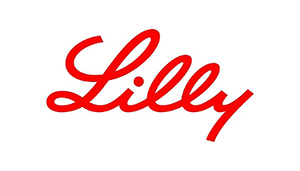
Eli Lilly (NYSE:LLY) said today that the FDA approved label changes for its once-weekly Trulicity injection. The new label was updated to include use in combination with basal insulin for adults with Type 2 diabetes.
The label update was based on results from a phase IIIb randomized clinical trial, Lilly said, which evaluated Trulicity as an add-on to titrated insulin glargine for 28 weeks. The data showed that the Trulicity-insuline glargine combination significantly lowered A1C compared to a placebo with insulin glargine.
The FDA 1st approved Trulicity in September 2014 to improve blood glucose in adults with Type II diabetes. The injectable medication is available via prescription in a prefilled pen.
“Despite best efforts to manage their A1C, many adults with Type II diabetes may need to add to or change their treatment plan to help them reach their blood sugar goals,” Lilly Diabetes VP of global medical affairs Dr. Sherry Martin said in prepared remarks. “They now have the option to use Trulicity, with its powerful efficacy in a once-weekly, easy-to-use pen, along with basal insulin for even greater control.”
Last month, Lilly missed earnings expectations, but beat revenue estimates on Wall Street with its 4th quarter results.
The Indianapolis-based company posted profits of $771.8 million on sales of $5.76 billion for the 3 months ended Dec. 31, for bottom-line growth of 61.3% on sales growth of 7.1% compared with the same period last year.
Adjusted to exclude 1-time items, earnings per share were 95¢, behind consensus on The Street, where analysts were looking for sales of $5.55 billion.
In December, Lilly said it is teaming up with pharmacy benefit manager Express Scripts (NSDQ:ESRX) to offer discounts on the US pharma giant’s insulin products for uninsured patients and people with high-deductible insurance plans. The program began this year and said it covers Lilly’s insulins Humalog, Humulin, and the biologic Basaglar. Lilly said it anticipates the program will provide some patients with a discount as high as 40%.
Insulin drugmakers have been criticized this year for their drug pricing strategies. Sen. Bernie Sanders (I-Vermont) took to Twitter in November and wrote that “People are dying or getting sicker because they can’t afford their insulin, just so Eli Lilly and Novo Nordisk can make outrageous profits.”

